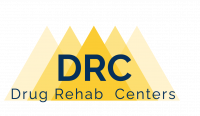Find Happiness In Our Depression Treatment Centers
Depression disorders are very common. Allow our depression therapy experts help treat the root cause of habitual sadness, and uncover mental wellness.Depression can get in the way of enjoying life by seeking treatment with our California mental health treatment center we can help you live a more fulfilling life!
Depression is a common mental health condition, and there are many depression treatment centers California to help anyone in need.
According to CDC estimates, 16 million adults in the United States have had a major depressive episode in any given year. This translates to 6.7% of the population with depression.
Unfortunately, the symptoms of depression often prevent people from getting the depression treatment California they need.
The good news is, depression is treatable, and you can make a sustained and meaningful recovery with the right help and treatment.
There are many depression treatment facilities California tailored to all types of depression. Whether you’re looking for depression treatment centers southern California or elsewhere in the state, you may have no idea what you’re looking for.
What to Expect from Depression Treatment in California
The most common form of depression is major depressive disorder. This is classified as follows:
- Mild depression
- Moderate depression
- Severe depression
Mild Depression
If you suffer from mild depression, your doctor may recommend the following approaches to treatment.
- Waiting: Often, if your doctor diagnoses you with mild depression, he might suggest you wait for a couple of weeks before taking further action. This period of watchful waiting is often enough for the depressive episode to subside and for normal life to resume.
- Self-help: Talking through your feelings can be beneficial if you have mild depression. Whether you speak with a friend or family member, or you prefer to engage with local self-help groups for those with depression, there are many ways to clear things up in your head without formal treatment.
- Exercise: Exercise can improve mood, and becoming more active is one of the most effective ways to combat mild depression. Get those endorphins pumping and become healthier in body and mind.
- Online resources: You can find many resources to help you work through depressive episodes online. This might be particularly valuable if you dislike spending time around people and you’re socially withdrawn. Educate yourself about all aspects of depression. From online CBT (cognitive behavioral therapy) to self-help books and inspirational material, imagination is your only limitation.
Moderate Depression
For patients with moderate depression, talking therapy, formally known as psychotherapy, can be a beneficial form of treatment.
From CBT and DBT to general counseling, your doctor will outline your many options for psychotherapy.
Severe Depression
If your doctor diagnoses you with severe depression, you might consider antidepressants.
Antidepressants are medicines designed to treat the symptoms of depression. There are many different types of this medication as outlined above. This medication needs to be prescribed by your doctor and used only as intended.
Sometimes, combination therapy can be effective for treating severe depression. This involves a combination of antidepressants and talking therapy. This often works better than using either of these treatments in isolation.
If you suffer from severe depression, it’s normal to be referred to a mental health team rather than an individual. You can expect to meet with specialist nurses, psychiatrists, psychologists, and occupational therapists. This team will deliver a combination of prescribed medications and talking treatments.
Now, depression can be further categorized according to the severity of the symptoms. For some people, depressive episodes are mild and fleeting. For others, these downturns are severe and ongoing.
Depression Therapy
Antidepressants are commonly used to treat moderate and severe depression.
The most frequently prescribed medications include the following:
- SSRIs: SSRIs (serotonin reuptake inhibitors) are often the first antidepressant a doctor prescribes. This class of drug is considered generally safe. SSRIs cause few troublesome side effects. Examples include Prozac, Zoloft, and Citalopram.
- SNRIs: Antidepressants like Effexor, Pristiq, and Fetzima are SNRIs (serotonin-norepinephrine reuptake inhibitors).
- Tricyclic antidepressants: While medications like Pamelor, Tofranil, and Norpramin can be effective, tricyclic antidepressants tend to cause more serious side effects than the newer forms of medication. This class of antidepressants is now not usually prescribed unless you have tried an SSRI with no improvement.
- MAOIs: MAIOs are monoamine oxidase inhibitors like Parnate, Marplan, and Nardil that are prescribed when other drugs have failed. These antidepressants can have severe side effects. You’ll also need to follow a strict diet as this class of drug interacts adversely with cheeses, pickles, and some wines.
- Atypical antidepressants: These antidepressants include Wellbutrin XL, Wellbutrin SR, Remeron, and trazodone. These drugs don’t fit neatly into any of the above categories.
If you’re considering any course of antidepressants, be sure to speak with your healthcare provider about expectations and side effects.
Antidepressants can be used as a standalone treatment, or they can be used in combination with talk therapies. In some milder cases of depression, talk therapy can be used in isolation.
Medications can also be administered in depression facilities California.
Here are the most popular modalities of therapy used to supplement medications:
- CBT (cognitive behavioral therapy): CBT helps you to better understand your behavior and your thought processes. You’ll learn how to identify triggers that could lead to depression, and you’ll learn better coping skills to head that depression off. CBT will help you to overcome feelings of hopelessness. This therapy recognizes that formative events may have shaped you, but places the focus firmly on your ability to change the way you think, feel, and behave right now. You’ll usually have CBT sessions once or twice weekly over a course of up to 20 sessions. CBT is sometimes delivered in groups.
- Online CBT: Take advantage of all the benefits of CBT without leaving home. A healthcare professional will guide you through your sessions virtually.
- IPT (interpersonal therapy): This form of psychotherapy focuses on your interpersonal relationships. You will learn how to communicate more effectively, and you’ll also get support coping with bereavement or any other external stressors. More research is needed to determine the effectiveness of this treatment, although some studies suggest IPT could be as helpful as antidepressants for some patients.
- Psychodynamic psychotherapy: With this form of psychotherapy, a therapist will encourage you to speak your mind. They will help you to identify any hidden meanings in your thoughts and actions that could be contributing to your depression.
- Counseling: In counseling sessions, you’ll be encouraged to work on the problems you’re facing in life so you can identify new solutions.
How, then, can you go about finding depression rehabilitation California?
How to Find Depression Treatment in California
Your healthcare provider should have some recommendations for depression rehab centers California if you need intensive treatment, whether that’s inpatient depression rehab California or outpatient depression therapy California.
To shortcut the process, reach out to admissions and enquire about our robust selection of depression treatment programs in California.
Rehab Center Programs
Recent Posts
Depression Treatment Facilities in California
Our depression treatment facilities in California ensure that your treatment is prioritized through numerous different treatment methods and depression therapies to help reach your wellness goals.
Finding The Best Depression Treatment Facility
The best depression treatment facility will be highly dependent on your individual treatment needs. Everyone’s situation is unique and your depression treatment should be customized to you. So when you are searching for the best depression treatment facility make sure you are taking a look at these aspects.
Location Of Depression Treatment
Location matters especially in your treatment environment you want somewhere that is motivating, happy, and welcoming. Many people will find that the location of their treatment center has a big impact on their overall wellness. Our California depression treatment center makes that easy by providing recovery in Southern California through access to beaches, city scapes, shopping, site seeing and more. California is a great place to call the home of your recovery.
Accreditation Of The Facility
You want to make sure the California Depression treatment facility caters to the treatment you desire and has the expertise and accreditation to deliver. Our experts come from various different backgrounds and provide excellent treatment options so you can find your happiness
Depression Rehabilitation California
If you need help with depression our depression rehabilitation programs can help you find recovery from depression in a uplifting, motivating, and recovery focused environment. Rehab is not just for those facing substance abuse and addiction those with mental health roadblocks find that the comprehensive approach and therapy helps combat depression and uplift those suffering. Many Programs include outpatient care, IOP, EMDR Therapy, and residential care for depression.
Best Treatment Offerings For Depression
By treating all facets of anxiety we can provide clients with the therapy, tools, and treatment to take back control of their life.
For More Information on Depression Treatment
Our admissions specialists are on the phones to help you find the treatment you deserve. For anxiety therapy, treatment, or coverage options call us today!
Related Articles
Don't wait to get the depression treatment you need, call us today at 866-559-4256 and find your happiness!











